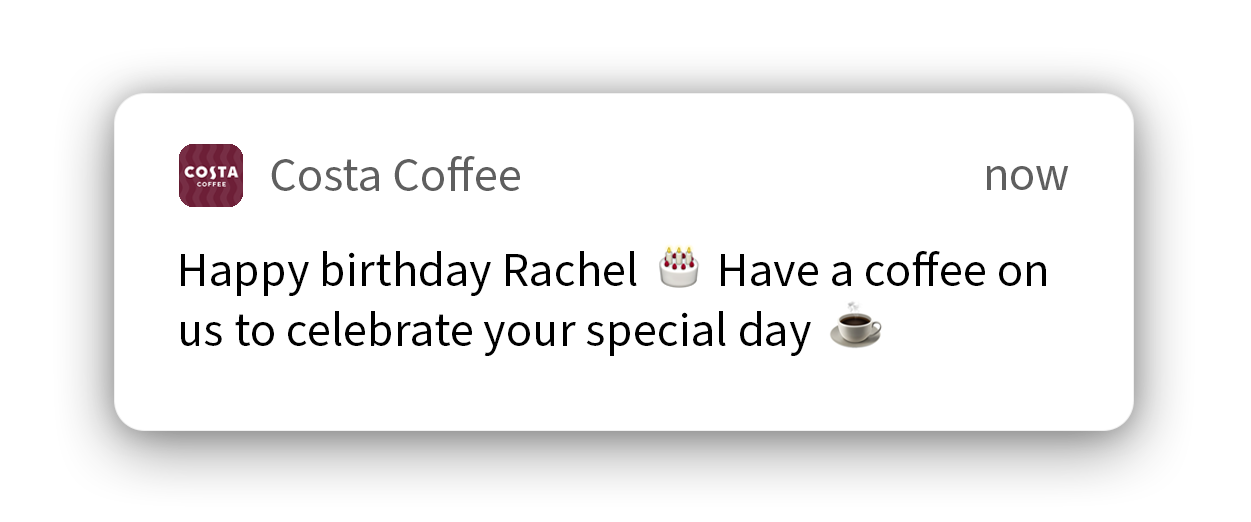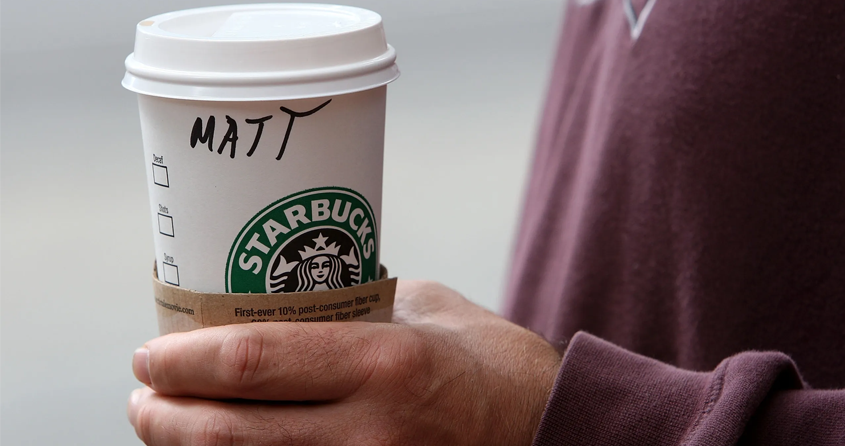In the fast-paced world of mobile apps, customer expectations around personalized experiences are reaching new heights. Recent research reveals a whopping 73% of customers expect brands to understand their needs and expectations on a deeply personal level. And with more and more brands adopting advanced personalization, consumers now want you to know far more than their name.
If you’re still stuck on the first-name basis, it’s time to level up your mobile app messaging game with these data-driven personalization strategies.
Why use advanced mobile app personalization?
Boost revenue and conversions
Advanced personalization is a revenue booster. According to Liveclicker, implementing advanced personalization tactics can potentially add 17% more to your revenue. Imagine turning a $100k generic campaign into a $117k opportunity just by understanding and targeting your users better.
Collect more user data
Data is the new gold, and users are willing to share it if they see the value. Great brand experiences can incentivize customers to consent to giving more of their data. Show them you’re using their data to enhance their experience, and they’ll be much more willing to open up. Today’s customers want convenience and expect you to know and respond to their preferences, past interactions, and purchases.
Deliver a better customer experience
Personalizing your messages beyond the profile data you gather shows customers how well you understand their individual needs. Your messaging should always resonate with users based on their buying journey, behavior, habits, and app lifecycle.
For example, if someone regularly browses Guns N’ Roses merchandise, you might target them with a personalized notification saying, “Hey Alex, we thought you’d like to know Guns N’ Roses t-shirts are two-for-one this month. Rock on! 🤘”
Foster customer loyalty
Consumers gravitate towards brands that recognize them as individuals. In this sense, personalization has become a brand differentiator. Look at Spotify; its users love their Discovery Weekly playlists.

Spotify begins by looking at two billion playlists created by its users—each one a reflection of a user’s tastes. Those human selections and groupings of songs form the core of Discover Weekly’s recommendations. It then compares your listening habits and those with similar tastes to suggest new songs you haven’t listened to before and fit your profile.

What once was a cassette mixtape gifted by a music-loving friend is now cooked up by an algorithm to deliver that same deeply individual experience. Users love feeling recognized as individuals, and that’s where loyalty begins.
Moving beyond name-based personalization
Now that we’ve covered the power of advanced personalization, let’s explore some practical strategies to use the data available to you to take your mobile app messaging to new heights.
Personalize abandoned cart campaigns
The mobile shopping cart abandonment rate is a staggering 84%. There are many reasons why customers walk away from the checkout process, but crafting a compelling message can bring them back to your app to complete their purchase.
Trigger a push notification an hour after the user closes your app to remind them about the exact items left in their cart. Include an image of the item and deep link the message directly to where the user abandoned the purchase to make it as easy as possible for them to pick up where they left off.

Further entice customers to convert with a special offer, such as free shipping or a price discount. Or create urgency by placing a time limit on the promotion or mentioning if stock levels are low on a particular item. Try some of these tactics and watch those abandoned carts turn into completed purchases.
Use location-based messaging
Bring real-world relevance to your messaging and make your offers stand out by incorporating a user’s location into your campaigns.
If you have physical stores or locations, leverage geolocation targeting to drive more foot traffic. Starbucks does this brilliantly, offering personalized push promotions to customers near their cafes. Users who enter a geofence close to a Starbucks cafe receive a promotional offer tailored to their preferences and past order history.
In this example, the coffeehouse chain offers the user a discount on the drink they usually order to build an emotional connection and entice them when they are in the vicinity of a store.
Trigger behavior-driven messages
Using triggered push automates sending notifications to customers in direct response to their actions and behavior. Whether it’s finishing a TV series or unlocking a new loyalty level, triggered push campaigns engage users at impactful moments in the customer journey.

Similarly, you can trigger a push message when users fail to complete a specific action, such as a purchase, level in a game, or opening the app within a specified timeframe. These notifications are unique to each user, making them highly personalized and contextual.
Welcome new users with precision
First impressions matter. Delight your new users with a perfectly timed welcome message and tailor your content to match the actions they have taken in the app so far. If all they have done is download the app, you can send them a push outlining the steps they need to take to get going.
Or if they started completing their profile but abandoned halfway through, deliver an incentive to encourage them to return and finish where they left off.

Celebrate customer milestones
Birthdays, anniversaries, and in-app successes deserve recognition. These special occasions are the perfect opportunity to engage your customers and leave a lasting impression.

Personalized incentives create emotional connections and can turn one-time users into long-term supporters of your brand.
Deliver personalized recommendations and offers
Your customers’ browsing and buying behavior hold valuable insights. Leverage what you know about your customers to send relevant product recommendations and offers. You can trigger a personalized message like this one when a user purchases from a particular product category:

Or send an in-app message with an offer on a complementary product when a user adds an item to their cart. Delivering even a single personalized product recommendation can boost average order value by 369%, not to mention help users discover items of value and interest to them.
Engaging your audience with custom offers keeps your brand memorable and provides an extra layer of personalization to help boost retention.
Elevate your mobile app personalization strategy
Personalization is essential for app growth and success. Are you looking for new ways to enhance your personalization efforts? Book a demo with our team of marketing experts to explore how leading brands are turning advanced personalized experiences into tangible business results.





